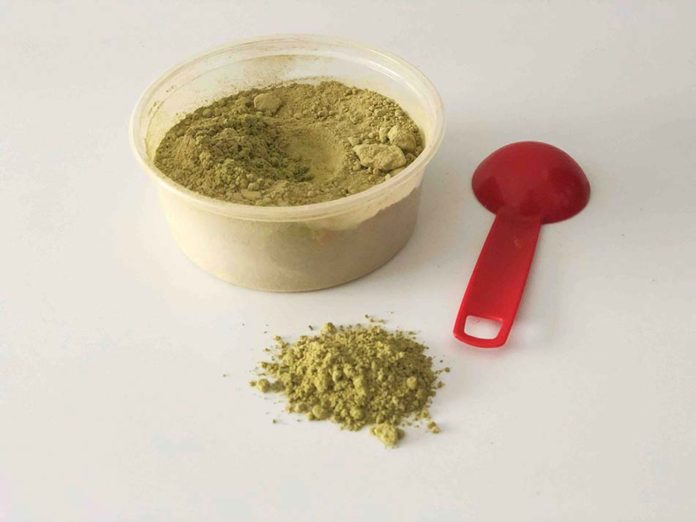It’s the most wonderful time of the year – well almost! Ramadan is around the corner, and we are here to give you some useful tips to get you right for this Ramadan.
Even though it only comes around once a year, it is 30 days that should be used wisely. Preparing for it is a great way to make the most of your days and can help you break habits and make new, healthy ones.
We want you to be ready in all aspects. Your mind, body, and soul should be in harmony during Ramadan and to prepare, we have created lists of tips and useful resources to get you started.
This blog post will focus on how to get your mind right. Keep reading to see our list of ways to prepare you and get you started for this beautiful time.
1. Make the Intention to Have a Productive and Spiritual Ramadan Experience
The beauty of Islam is often lost in interpretation and our busy lifestyles we live. We find ourselves focusing on our job, schoolwork, and our friends or family. By the time the day is done, you are exhausted and ready to fall asleep and miss Isha prayer.
Ramadan is only 29 or 30 days long, and for this very reason should be used wisely as a time for personal growth. Even though it isn’t here yet, any preparation we do for the beautiful month can be vital to our Ramadan experience. For all we know, this could be our last Ramadan.
Ramadan is a time to refuel our love for Islam and reconnect with the beauty of being a Muslim. Make a list of things you want to learn more about that you keep pushing off for when you have time, and prepare your mind for a month of no distractions. This can take a lot of skill and patience, so start slow and ahead of time before Ramadan begins. Keep reading below for ways to help you with this journey.
2.Download Apps So You Get Notifications to Alert You When It’s Time to Pray
We all have good intentions to stay on track with our prayers, and we know that one of the five pillars of Islam is dedicated to praying the five obligatory daily prayers. As mentioned in a previous post our phones have great ways to help us up to date and on time for prayer. Download apps that can alert you with notifications for each prayer, and come with a tracking feature so you can check off each prayer as you pray them. Some also have a countdown next to the next prayer time so you know how much time you have until the next prayer.
Apps like Athan: Prayer Times & Quran are extremely helpful. They also have useful features like duas helping find the prayer direction and where to face for the Qibla. Also, check with your local mosque and see if they have their own app. Some mosques have their own application and the prayer times are more accurate for your location. They also most likely have details about events happening at the local masjid and the surrounding areas.
3.Get Your Mind and Body Ready for Ramadan by Participating in Voluntary Fast Days
What better way to prepare yourself for Ramadan than through practice? Try doing a few fasts in the weeks leading up to Ramadan to help you adapt. This is also a great opportunity to make up for any missed fasts from last year. Also, you can try to align them with the Sunnah fast days Monday and Thursday.
4.Regulate Your Sleep Pattern to Train your Body and Mind for Early Suhuur Mornings
If you currently sleep late and wake up late, this is a good time to start regulating your sleep. During Ramadan you will be waking up early for Suhoor (or at least try to!). If you keep doing this over a few days, you might find yourself sleeping earlier as a result. If you are finding it hard to adjust, try to have an afternoon nap so you aren’t completely drained before the end of the day.
5.Do a Brain Dump and List Everything Taking Up Valuable Space in Your Mind to Make Room for Intentional Tasks and Increasing Your Knowledge of the Beauty of Islam
Too often we waste our precious time on unnecessary tasks, which aren’t really tasks but we force ourselves to believe they are to justify why we do them. We watch things that don’t benefit our minds and hearts, such as Netflix (guilty!), and listen to songs that are derogatory and obviously wrong, but we justify them as just a song and just a show. We promise ourselves we will get back to what we have to do later, and most of the time we never get to the important tasks. This Ramadan, make room and time for intentional tasks that will help you either progress at work, at home, or in your faith and take the time to actually do them.
A great example is replacing your music listening time with Quran, or podcasts about Islam. A great one is the Muslim Central Mufti Menk podcast discussed in our post.
Pro Tip: Make lists of things you want to accomplish this Ramadan (big or small). Then make a list of things you want to cut back on during the month of Ramadan. This isn’t to say you can never do them again, think of it as a break from them. Remember, Ramadan is only here for a month – you have 11 other months to do those other things!
6.Try Not to Snack During the Day to Avoid Random Spurts of Hunger During Ramadan
Get used to having three main meals – breakfast, lunch and dinner – and avoiding snacking in between. During Ramadan, you will have to get used to having two main meals, Suhoor and Iftar. This way, you will only have to cut out one meal. This is also a great time to implement an intermittent fasting routine before Ramadan begins.
7.Start Having an Early Healthy and Well-Balanced Breakfast Every Morning – Even on Weekends
During Ramadan, we wake up early for Suhoor, the pre-dawn meal before the fast begins. It is extremely important not to skip this meal, especially if you live in parts of the world where you could be fasting to upwards of 15+ hours. Start having an early breakfast from now to help your body get used to the earlier hours, especially if you are not much of a breakfast eater. This can also encourage you to train your body for fasting by practicing intermittent fasting which is a great opportunity for the body to cleanse itself of waste and to increase one’s metabolic rate, helping burn more calories.
8.Work on Your Patience and Try to Be More Understanding of Others
Too often we jump to conclusions or get mad during a drive-thru line up that you are stuck in. During this lead up to Ramadan, try to be more mindful and aware of your emotions. When you find yourself annoyed or frustrated, take a mental step back and breathe. Reevaluate the situation, and see it from a different perspective. Chances are, it’s really not that serious!
9.Think, Speak and Act with Intention!
Social media has made it so easy for us to unintentionally think and say things about people because we literally have them in the palm of our hands (well, their photos and videos, that is). Next time you are scrolling through your Instagram or Facebook feed and see someone post a selfie or a video, try to speak or think positively. It is very easy to go into a critical spiel about the person, but it is wiser and more beneficial for both parties to speak well and with purpose. Remember – if you have nothing nice to say, then don’t say anything at all!





















